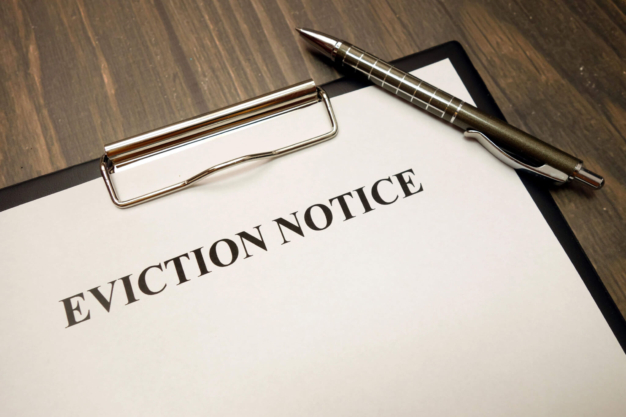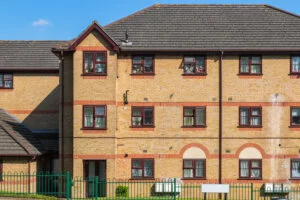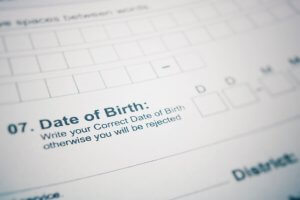I am renting from a private landlord and he has asked me to leave the property – what are my rights?

Contact
Table of Contents
The ONS reported in 2019 that between 2007 and 2017 the number of households in the private rented sector in the UK increased from 2.8 million (2007) to 4.5 million (2017). That figure is only likely to have increased since 2017. This figure does not include those that rent with social landlords (Councils or Housing Associations), and I am not intending to address these types of tenancies in this blog.
A lot of people rent in the UK. Most private rented accommodation is let on assured shorthold tenancies (ASTs). There are, of course, other types of residential occupation agreements – for instance, some people will have licences or will be lodgers who live with their landlords. Typically these types of arrangements are less secure than tenancies and landlords in such cases will have to comply with less formal requirements before they can expect you to leave the property (it may be sufficient to simply give reasonable notice). It is always worth seeking legal advice from a housing solicitor if you are unsure about the type of agreement you have, particularly if you are being asked to leave the property without a court order.
If you have an AST then your landlord will have to follow certain procedures before you will be expected to leave the property. This can be split into three stages:
- Your landlord first has to serve a valid notice on you. The type of notice will depend on the circumstances (see below)
- After expiry of the notice, your landlord would need to apply to the county court to obtain an Order for Possession. If the Court makes an Order, this will gave a ‘date for possession’.
- After the date for possession has passed, your landlord can apply to the court for an eviction (a warrant). Once this has happened you will receive a Notice of Eviction which will inform you when bailiffs will attend to enforce the possession order.
It is only after a lawful possession and eviction process has been followed that assured shorthold tenants can be required to leave residential property.
If you are still in the ‘fixed term’ of your tenancy, your landlord could only look to end the tenancy if you are at fault and/or have breached one or more of your tenancy conditions (for example if you are in rent arrears). Where fault is alleged on your part, your landlord could serve a notice under s.8 of the Housing Act 1988, specifying the ground or grounds relied upon. The notice will explain the reasons (grounds) that possession is being sought. The length of notice you should be given will depend on which ground is used.
After expiry of the notice, your landlord would be entitled to issue a claim for possession in the county court. The claim would be served on (sent to) you at the property and this would confirm the date for a hearing. You will receive a defence form to fill in, which you should do as soon as possible before the hearing if you dispute the claim or if you need more time. You should attend the hearing and tell the judge if you disagree with the claim and wish to put forward a defence. The judge at the hearing will decide whether to make an order for possession. If there is a defence to the claim, it is likely that the court will adjourn the hearing to a later date to allow more time to consider the facts of the case. If there is no defence, the judge will make an order but the court does have discretion to delay the date for possession by up to 42 days if there are good reasons to do so (if you can show evidence of hardship).
If the court makes an order for possession, this will specify a date by which possession of the property should be given. This is not the date by which you must leave the property and your landlord cannot require you to leave on this date. Rather, the date for possession is the date after which the landlord can apply to the court for an eviction warrant. The court will then notify you of a date for eviction. In some (but not all) cases you can apply to the court to suspend the eviction. You should seek advice on this if you are unsure.
It is important to note that you do not have to leave the property before the eviction date. Any attempt by your landlord to force you to leave before a court-given eviction date may amount to an unlawful eviction, which is a criminal offence.
If the ‘fixed term’ has ended, your landlord could use the s.8 notice procedure above in the same way, or they could serve a notice under s.21 of the Housing Act 1988. This is a ‘no fault’ basis to recover possession, and it enables landlords to get their property back without having to give a reason. It is not uncommon for landlords to serve both types of notice at the same time, which will then entitle the landlord to choose which to rely upon when applying to court.
The s.21 procedure is different, and unfortunately the law in this area is now very complicated. It can be difficult for a landlord to serve a valid s.21 notice because of the requirements that must be met. It is always worth seeking advice if you receive a s.21 notice because in many cases the landlord will have made a technical error. This could provide a complete defence to the claim. The notice must be in a prescribed form and must give a minimum of 2 months’ notice.
The claim for possession is slightly different where a s.21 notice is used. Instead of listing a hearing, the court will usually decide whether to make an order by looking at the papers. It is therefore very important that you put in your defence form as soon as you can to ensure that the judge looking at the papers can understand the full circumstances. The court may list a hearing if there are complex issues raised in the paperwork.
After a possession order is made, the above eviction process procedures will then apply.
The important point here is that for all ASTs, landlords must obtain a court order for possession and then obtain a warrant to permit bailiffs/High Court officers to evict you.
Legal aid is available for housing possession matters, unlawful evictions and homelessness, subject to a means and merits assessment. My colleagues and I are able to advise you in your case under the firm’s legal aid housing contract.
Blog post written by Alex McMahon, solicitor in the Housing and Social Care team
Share this article
“The housing team at Osbornes is the best in England.”
“Osbornes Law represents tenants in the full variety of housing law matters, including issues of possession, eviction, disrepair and anti-social behaviour.”
Contact us today
More from AlexVIEW ALL
- 23.1.2024
Case Reiterates Local Authorities should follow Allocation Scheme
R (on the application of Kukhtyak) -v- London Borough of Hounslow [2023] EWHC 2914 (Admin) This sad case concerned an elderly couple...
Read more - 12.4.2022
Vulnerable child wrongly assessed to be an adult
Upper Tribunal finds a vulnerable child to be 17 years old despite two flawed local authority age assessments which led to...
Read more - 13.8.2020
Judicial review – friend or foe?
The Government announced on 31st July 2020 that an independent panel has been asked to look at judicial review to consider...
Read more - 21.2.2020
Fitness for Human Habitation Act 2018
Understanding the Fitness for Human Habitation Act 2018: Your Rights as a Tenant “Home is a safe haven and a comfort...
Read more






